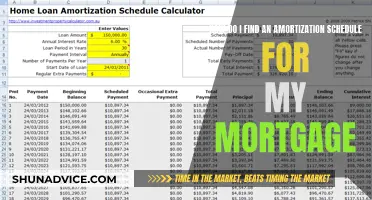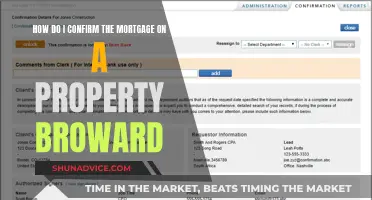
If you're interested in becoming a self-employed mortgage advisor, there are a few key steps you should take. Firstly, it's important to develop strong communication and interpersonal skills, as well as a deep knowledge of the industry. Obtaining the necessary qualifications, such as the Certificate in Mortgage Advice and Practice (CeMAP), is essential. This certification will provide you with the knowledge and understanding of mortgage products, regulations, and advice procedures. You should also consider taking out relevant insurance, such as professional indemnity insurance, to protect yourself against legal issues. Additionally, you'll need to decide on your service charges by researching competing businesses in your area. Marketing your business through a website and social media platforms is another crucial aspect of attracting clients. Being self-employed offers the freedom to work independently and provide unbiased advice, but it also comes with challenges like managing your own taxes and the potential for an unstable income.
What You'll Learn
- Qualifications: You'll need the Certificate in Mortgage Advice and Practice (CeMAP)
- Skills: You must have strong communication and interpersonal skills
- Income: Self-employed mortgage advisors have higher earning potential but less income stability
- Business factors: You'll need to create a website, manage your business, and find clients
- Insurance: You'll need professional indemnity insurance to protect against legal action

Qualifications: You'll need the Certificate in Mortgage Advice and Practice (CeMAP)
To become a self-employed mortgage advisor, you'll need to obtain the Certificate in Mortgage Advice and Practice (CeMAP). This is the industry-standard qualification recognised by the Financial Conduct Authority (FCA) and is essential to providing your clients with the best possible service. Without it, you may face legal action from clients.
The CeMAP course covers every aspect of the industry, including finance industry practice and law, completing mortgage applications, financial industry regulations, and protection products. It consists of several modules that you must study to gain essential knowledge and understanding of mortgage products, regulations, and the process of providing advice.
You can pursue the CeMAP qualification through your employer or independently. Simply Academy, for example, offers CeMAP courses facilitated by experienced trainers, allowing you to choose your preferred learning method, be it classroom learning, live webinars, or self-paced e-learning.
After obtaining your CeMAP qualification, you may want to continue your professional development by specialising in a specific mortgage type or pursuing further qualifications.
Steps to Applying for a Mortgage: A Guide
You may want to see also

Skills: You must have strong communication and interpersonal skills
Strong communication and interpersonal skills are essential for a career as a self-employed mortgage advisor. This line of work involves a lot of client interaction, so you must be able to build and maintain relationships with your clients. You will also need to explain complex information to your clients in a way that is easy for them to understand.
As a self-employed mortgage advisor, you will be providing advice on an independent basis and will not have access to the same support networks that employed advisors have. Therefore, it is important that you are comfortable with technology and able to manage your own business, including finding new clients and sources of income, as well as promoting and marketing your business.
In addition to strong communication and interpersonal skills, you will also need to be knowledgeable about the mortgage industry and have a broad network of contacts. This will enable you to source the best mortgage products for your clients from across the entire industry, rather than just from a single company.
While self-employment offers greater freedom and flexibility, it also comes with its own set of challenges. For example, you may need to work more hours, especially when starting out, and you may not have the same job security as employed advisors. It is important to consider these factors before deciding to become a self-employed mortgage advisor.
Applying for Mortgage Assistance: A Step-by-Step Guide
You may want to see also

Income: Self-employed mortgage advisors have higher earning potential but less income stability
Self-employed mortgage advisors have the potential to earn a high income, but it is not a stable or guaranteed amount. As a self-employed advisor, you will be paid on a commission basis, receiving a percentage of the loan amount for each mortgage you complete. This means your income will depend on how much you work and how many clients you can attract and retain.
When starting out as a self-employed mortgage advisor, you can expect to earn around £25,000 per year, which can increase to £45,000 or more annually as you gain experience. However, your earnings will depend on your ability to attract and retain clients, and the amount of work you can take on. You will also need to consider the time and effort required to promote your services and build a solid network of contacts.
To become a successful self-employed mortgage advisor, it is important to have the relevant qualifications, such as the Certificate in Mortgage Advice and Practice (CeMAP), and to continuously update your skills and adapt to new regulations. You will also need to create a website and maintain a presence on social media platforms to raise your public profile and reach potential clients.
While self-employment offers greater freedom and the potential for higher earnings, it is important to remember that you will not have the support networks that employed advisors have. You will be responsible for managing your business, finding new clients, and handling all your own tax matters.
Additionally, as a self-employed mortgage advisor, you may face challenges when applying for your own mortgage. Lenders typically require more evidence of income, such as two to three years of tax returns, to ensure you can meet monthly repayments. Providing detailed accounts and demonstrating consistent earnings can increase the amount you are eligible to borrow.
Applying for a Mortgage Holiday: What You Need to Know
You may want to see also

Business factors: You'll need to create a website, manage your business, and find clients
To become a successful self-employed mortgage advisor, you need to create a website, manage your business, and find clients.
Creating a Website
A website is essential for any business, as it provides an online presence and a platform to showcase your services. You can create a professional-looking website using website builders like Canva, which offers free and easy-to-use tools with customizable templates. Optimize your website for search engines and mobile devices, making it user-friendly and accessible. Determine the purpose of your website, whether it's for marketing, showcasing products, or providing information. You can also use social media platforms like LinkedIn and Facebook to reach a wider audience and connect with potential clients.
Managing Your Business
Running a business involves various legal, financial, and operational considerations. It is important to maintain proper bookkeeping, understand labor laws, and meet tax obligations. Protect your business from cyberattacks and create a disaster response plan. Additionally, consider the costs of assets or equipment needed for your business.
Finding Clients
To find clients, you can utilize social media platforms like LinkedIn and Facebook to connect with businesses and local communities. Offering competitive prices can also attract new customers, and as your credibility grows, you can gradually increase your rates. Networking and building relationships are crucial for expanding your client base.
Adding Your Adult Son to Your Mortgage: What You Need to Know
You may want to see also

Insurance: You'll need professional indemnity insurance to protect against legal action
As a self-employed mortgage advisor, you will be responsible for managing your business, finding new clients, and sourcing products from any lender for your clients from across the entire industry. This means that you will need to have a deeper and broader knowledge of the industry and more contacts than an employed advisor.
Given the nature of the work, it is essential to have the right insurance cover to protect yourself against legal action. Professional indemnity insurance (PII) is a compulsory requirement set by the Financial Conduct Authority (FCA) for all Financial Service Advisors. It covers financial losses suffered by your client due to professional negligence, errors, or omissions made by you during the provision of your professional services. It also provides legal defence, meaning you won't have to hire your own solicitor or pay for it.
The cost of professional indemnity insurance can vary depending on the business type, business size, policy limit, and claims history. It is important to understand what your liabilities would be should something go wrong and to ensure that you have the right coverage to protect yourself.
In addition to professional indemnity insurance, you may also want to consider public liability insurance to help with the costs of legal action.
USDA Mortgage: Application Process Simplified
You may want to see also
Frequently asked questions
You will need to obtain the Level 3 CeMAP qualification, also known as the Certificate in Mortgage Advice and Practice. This is the industry-standard qualification and is widely recognised as the standard qualification for mortgage advisors.
Strong communication and interpersonal skills are a must, as well as being comfortable with technology.
Self-employed mortgage advisors typically earn via commission from the provider, which is usually around 0.4% of the loan amount. Therefore, how much you earn depends on how much you work. You can expect to earn around £25,000 per year when starting out, rising to £45,000 or more with experience.
Self-employed mortgage advisors have more flexibility in their working hours and location, allowing for a better work-life balance. They also have higher earning potential and can provide advice on an independent basis, sourcing products from any lender.
Self-employed mortgage advisors may work more hours, especially when starting out. They also have no paid holiday or sick leave, and are not auto-enrolled in a pension scheme. It may also be more difficult to get a mortgage as a self-employed person.







